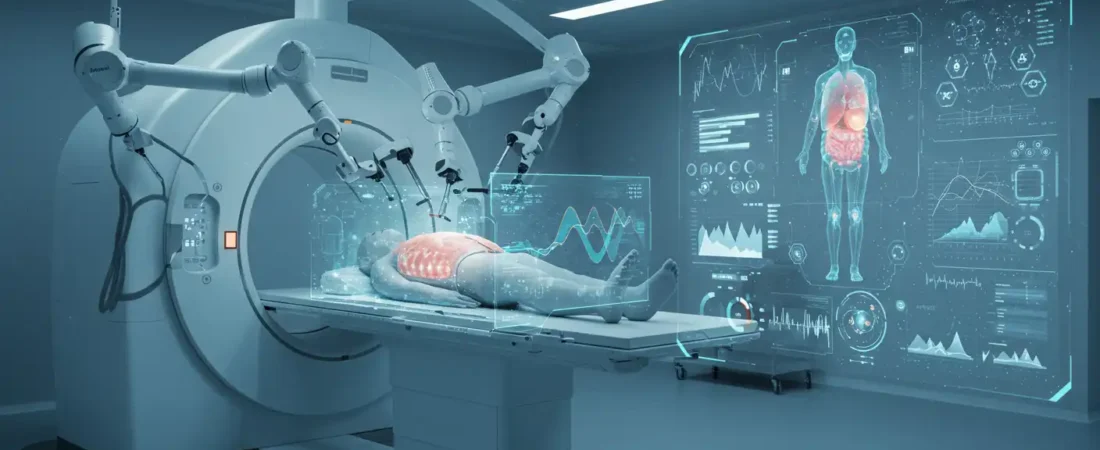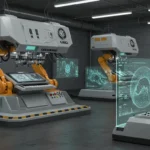Artificial Intelligence in Healthcare is Transforming Disease Detection
Artificial Intelligence (AI) in healthcare is revolutionizing how we approach disease detection, especially in the earliest and most treatable stages. By combining powerful machine learning models with medical imaging, genetic data, and patient history, artificial Intelligence systems are enabling faster, more accurate diagnoses than ever before. These advancements are not just improving patient outcomes they’re reshaping the entire healthcare landscape.
As hospitals and research institutions adopt AI tools, we’re witnessing a paradigm shift from reactive to proactive medicine. AI in healthcare is not just about detecting illness it’s about anticipating it, often before symptoms even arise. This level of early detection is saving lives, reducing treatment costs, and optimizing care pathways.
The growing integration of AI into diagnostic protocols, screening processes, and wearable technology means that patients are gaining unprecedented control over their own health. As artificial Intelligence tools become more sophisticated, accessible, and personalized, early detection is no longer a luxury it’s becoming standard practice.
How Medical Artificial Intelligence is Powering the Future of Early Diagnosis
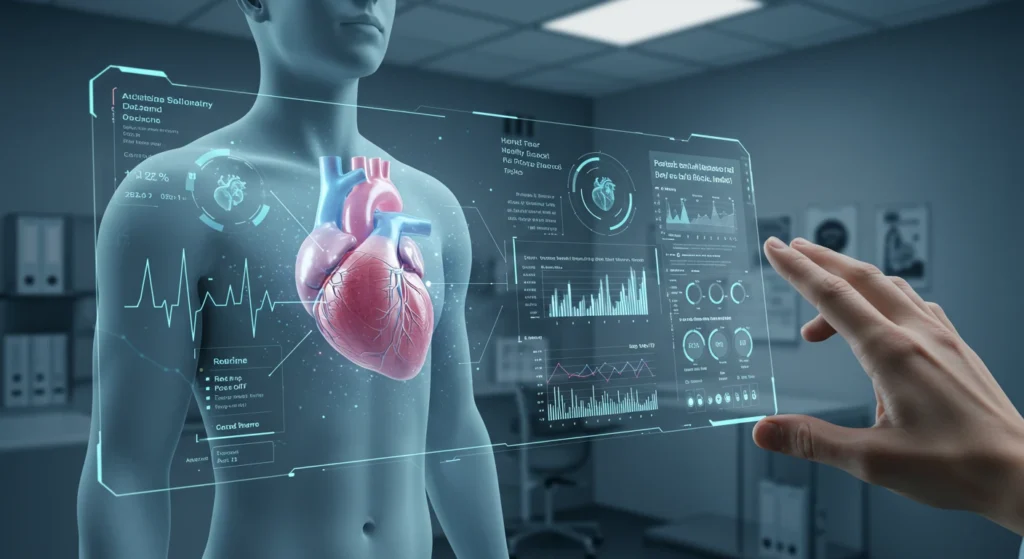
A New Era of Diagnostic Precision
Medical AI tools have advanced significantly in recent years, offering a level of precision that surpasses traditional diagnostic methods. Machine learning models trained on vast datasets can now identify patterns that elude even experienced clinicians. For example, Google’s DeepMind developed an artificial Intelligence system that can detect over 50 eye diseases from a single retina scan (source).
These breakthroughs show that medical AI can assist doctors by flagging potential issues early, allowing interventions before conditions worsen. Diagnostic AI is now capable of reviewing X-rays, MRIs, and pathology slides at speeds and accuracies that rival and in some cases surpass those of human specialists.
Subsection: Artificial Intelligence Models vs. Human Accuracy
Studies have demonstrated that AI models can match or outperform radiologists in several key areas:
- Breast Cancer Detection: Deep learning models have been trained to identify malignant tumors in mammograms with fewer false positives and negatives than experienced doctors.
- Skin Cancer Screening: AI applications using convolutional neural networks have achieved dermatologist-level accuracy in detecting melanoma from dermoscopic images.
- Ophthalmology: Artificial Intelligence has shown superior performance in diagnosing diabetic retinopathy and glaucoma from retinal scans.
These advances mean earlier intervention, more personalized treatment plans, and a reduced burden on healthcare professionals.
Transition to Predictive Healthcare
Rather than reactively treating illness, artificial Intelligence enables a predictive approach. Algorithms use lifestyle data, genetics, and medical history to assess a person’s risk and suggest early interventions. For example, the Mayo Clinic is testing predictive AI tools that alert clinicians about heart failure risks up to 30 days in advance.
This predictive capacity is not limited to chronic conditions. Infectious disease outbreaks, autoimmune conditions, and mental health crises are also being forecasted using AI models. This allows for better resource allocation, early treatment, and even prevention through lifestyle adjustments or preemptive medication.
By integrating artificial Intelligence into wearable devices and mobile apps, consumers can receive personalized health insights in real time. These devices collect data on heart rate variability, sleep cycles, oxygen saturation, and more, allowing for a comprehensive view of wellness that informs both patients and clinicians.
Disease Prediction Through Artificial Intelligence in Medicine
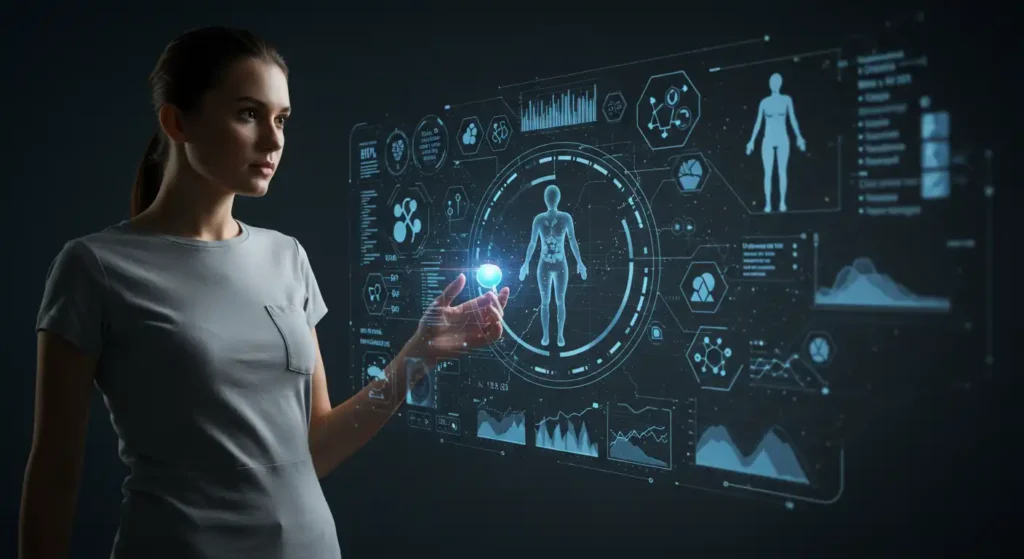
The Power of Predictive Analytics
Artificial intelligence in medicine allows for real-time data analysis from wearable devices, electronic health records (EHRs), and lab results. Predictive models alert healthcare providers about potential disease outbreaks, individual risk factors, or critical health deterioration.
The predictive capabilities of AI extend beyond individual diagnosis. Epidemiological models powered by machine learning help governments and public health agencies forecast flu seasons, COVID-19 waves, and even rare disease outbreaks. This macro-level prediction is vital for mobilizing public health responses and ensuring that critical supplies reach affected areas in time.
For example, IBM Watson Health has collaborated with hospitals to predict sepsis risk, a life-threatening condition that’s difficult to diagnose early. These artificial Intelligence models drastically reduce patient mortality by identifying warning signs hours before visible symptoms emerge. This level of foresight can mean the difference between life and death.
Artificial Intelligence Applications in Chronic Disease Prevention
- Diabetes: AI systems track continuous glucose monitoring data, predicting dangerous spikes or drops in blood sugar and recommending adjustments to diet or insulin dosage.
- Cancer: Predictive models assess risk based on genetic mutations, family history, lifestyle factors, and environmental exposures. This allows for more frequent and targeted screening.
- Alzheimer’s: AI can detect minute changes in brain scans or speech patterns that might suggest the earliest stages of cognitive decline, enabling earlier therapeutic intervention.
Cited Insight
“AI-based predictive modeling can identify patients at risk for chronic disease with up to 94% accuracy.” – NIH.gov
As technology becomes more embedded in everyday devices smartwatches, fitness trackers, even smart home assistants predictive artificial Intelligence will become an invisible guardian, constantly working in the background to protect our health.
Artificial Intelligence in Medical Diagnosis: A Paradigm Shift
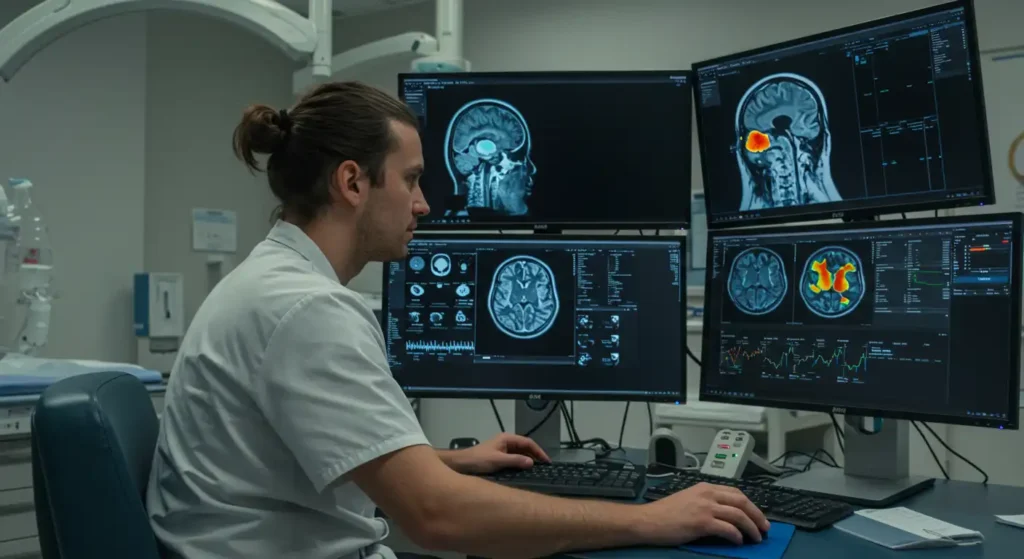
Enhanced Imaging and Diagnostic Tools
AI-driven imaging technologies are transforming diagnostics. Tools like Aidoc and Zebra Medical Vision analyze CT scans, MRIs, and X-rays within minutes, prioritizing critical findings and reducing diagnostic errors.
These tools are especially vital in emergency medicine. For example, when a patient comes to the ER with stroke symptoms, every minute counts. Artificial Intelligence tools can quickly interpret brain scans and alert neurologists, accelerating treatment and significantly improving outcomes.
Moreover, AI is improving diagnostic consistency. Human doctors, even experienced ones, can have variable interpretations of the same image. Artificial Intelligence offers standardized results, reducing the impact of fatigue, cognitive bias, and time pressure.
Natural Language Processing in Diagnostics
NLP enables machines to understand unstructured text in patient reports. By scanning physician notes and past diagnoses, AI systems identify potential red flags and suggest diagnostic paths. This boosts early detection for conditions like Parkinson’s, autoimmune diseases, and even mental health disorders.
Artificial Intelligence also facilitates the integration of patient-reported outcomes, chat transcripts, and clinician observations into a cohesive diagnostic profile, improving accuracy and providing deeper context to each case.
The Ethics and Reliability of Artificial Intelligence in Healthcare Systems

Balancing Innovation with Responsibility
While artificial Intelligence in healthcare holds immense promise, it raises questions about bias, transparency, and patient privacy. Ethical frameworks are being developed to ensure fairness in AI decision-making. Models must be trained on diverse populations to avoid misdiagnoses based on race, gender, or geography.
For example, an AI trained mostly on data from middle-aged white men may not perform well for diagnosing conditions in women or minorities. This “data bias” is a growing concern, and institutions are working to create more inclusive datasets.
Transparency is also vital doctors need to understand artificial Intelligence reasoning to trust its suggestions. Explainable AI (XAI) helps address this by making algorithmic decisions more interpretable. XAI tools provide visualizations and plain-language summaries of why a specific diagnosis or risk prediction was made.
Furthermore, privacy is critical. AI systems often rely on cloud-based data processing, which must comply with regulations like HIPAA (USA) and GDPR (EU). Ensuring encryption, secure storage, and user consent is key to maintaining trust.
The Human-AI Collaboration Model
Artificial Intelligence is a tool not a replacement. The most effective applications of AI in healthcare involve collaboration with human clinicians. AI can process millions of data points in seconds, but only a human doctor can contextualize those insights within a broader clinical picture, including emotional and psychosocial factors.
Final Thoughts: A Healthier Future with AI
The integration of artificial intelligence in healthcare is accelerating breakthroughs in disease prediction and medical diagnosis. As medical artificial Intelligence continues to evolve, early detection will become more personalized, accurate, and accessible. The future of medicine lies not just in treatment but in prevention, driven by intelligent, data-rich systems.
By embracing AI responsibly, with attention to ethics, data privacy, and clinician oversight, we can harness its full potential. Artificial Intelligence will not only help us live longer it will help us live better.
Ready to Explore the Future of Healthcare?
Stay ahead of the curve discover how cutting-edge AI in healthcare tools can transform your wellness journey.
